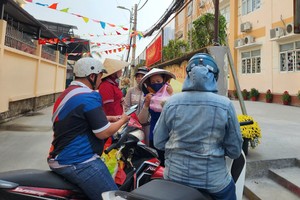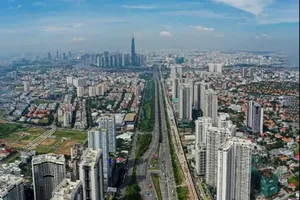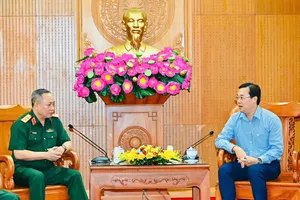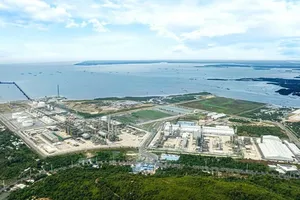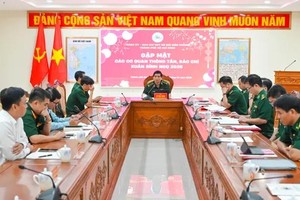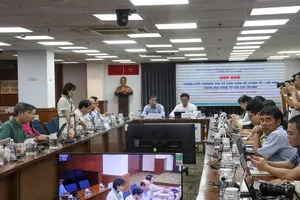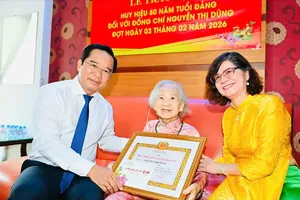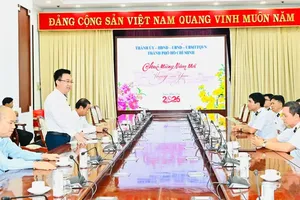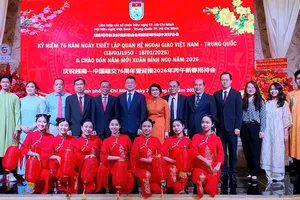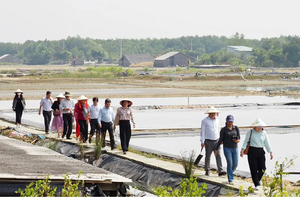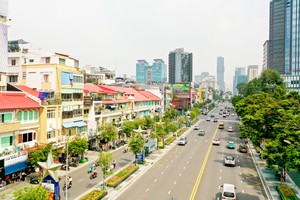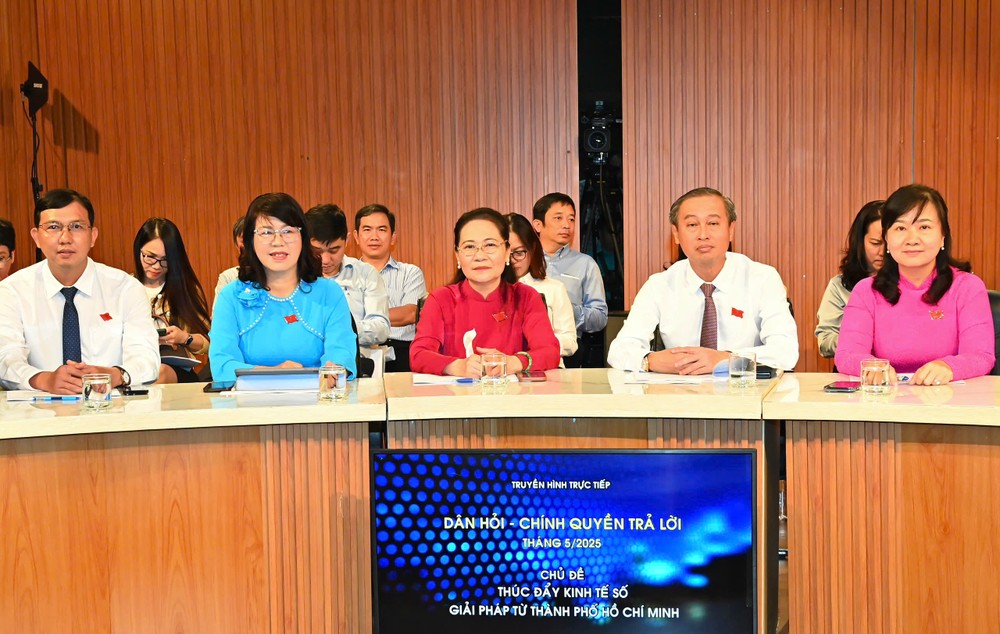
The program 'People ask - Government answers' in May with the theme 'Promoting digital economy - Solutions from HCMC' saw active engagement from voters who posed a wide range of questions about HCMC's digital future.
Among the attendees were Chairwoman of the HCMC People's Council Nguyen Thi Le, Vice Chairwoman of the HCMC People's Council Huynh Thanh Nhan, Vice Chairwoman of the HCMC People's Committee Tran Thi Dieu Thuy. Head of the Board of Economy and Budget of the HCMC People's Council Le Truong Hai Hieu chaired the program.
Key topics included strategies for digital transformation and boosting the digital economy, support mechanisms for businesses undergoing digitalization, the development of digital infrastructure and data centers, initiatives to modernize administration, and plans for linking public service payments with online platforms.
Addressing these concerns, Deputy Director Vo Minh Thanh of the Department of Science and Technology affirmed HCMC's substantial achievements in digital transformation, citing the city's focused leadership and coordinated efforts across multiple domains, the creation of digital platforms, a strong emphasis on data governance, infrastructure enhancement, and robust information security measures.
He continued that the city has deployed a data center with more than 1,248 servers, monitored 24/7 by professional departments; an integrated platform, sharing data connecting more than 2,000 units, connecting the national data sharing platform.
Moreover, the city identified the development of digital data as one of the fundamental tasks to carry out digital transformation. In addition, Ho Chi Minh City aims to build large international standard data centers located in the southern largest city to store and process data for the Southern key economic zone, said Deputy Director Vo Minh Thanh.
In addition, the city also aims to form a shared cloud computing infrastructure for state agencies and small and medium enterprises. This can support businesses by providing shared cloud services, reducing the need for initial investment in private infrastructure. Investing in advanced data centers and high-performance computing centers is considered part of the city's strategy to develop economic models on digital and innovative platforms.

Ho Chi Minh City will partner with major Vietnamese tech companies to establish regional data centers, following Central Government policies, said Deputy Director Vo Minh Thanh.
The Deputy Director of the Department of Science and Technology affirmed that Ho Chi Minh City determined that digital transformation must enable people and businesses to benefit from public services and social utilities more conveniently, quickly and effectively. Accordingly, the city has deployed a series of solutions, services and digital utilities to serve people and businesses.
He revealed that the administrative procedure information system is fully integrated, linking the VNeID citizen identification authentication system with the National Population Database and the National Public Service Portal.
In particular, Ho Chi Minh City exempts 98 administrative procedures when people do them online until the end of 2025. Currently, the city's Public Service Portal has been connected to the online payment platform, people can completely make online payments when doing procedures, and can use non-cash payments.
Futhermore, according to him, Ho Chi Minh City will upgrade to make online payment easier and more convenient, strengthen connections with payment service providers and payment intermediaries, and promote non-cash payments in all areas in the coming time.
Through these initiatives, Ho Chi Minh City is advancing toward a modern, transparent, and efficient administration—fostering an enabling environment for both individual and business development.
However, he admitted that the city is facing a serious shortage of human resources with digital skills. Many businesses have difficulty recruiting workers with suitable skills, especially in high-tech fields such as digital transformation, artificial intelligence and semiconductors.
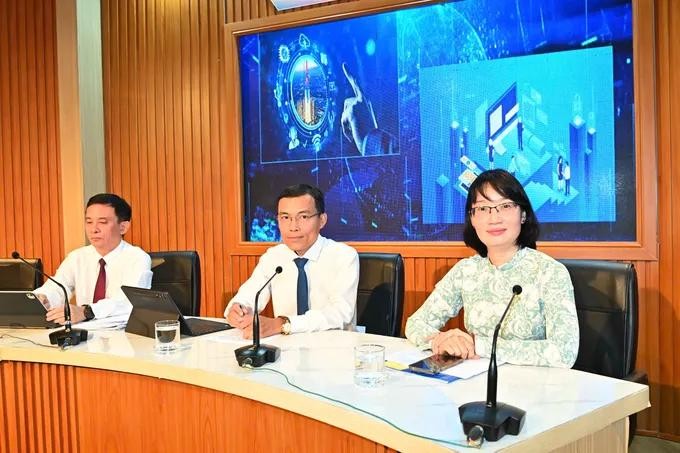
Therefore, Ho Chi Minh City has identified human resource development as a strategic priority in advancing digital transformation and building a knowledge-based economy. To meet the demands of the digital economy, the city is implementing a range of policies and strategies aimed at enhancing digital competencies and technological capabilities across the workforce and the population.
Elaborating on Ho Chi Minh City's strategic direction, Vice Chairwoman of the municipal People's Committee Tran Thi Dieu Thuy emphasized that science and technology, innovation, and digital transformation are critical drivers for fostering rapid, sustainable, and inclusive growth of the digital economy and digital society.
In 2025, Ho Chi Minh City sets a target of double-digit growth, Vice Chairwoman of the People's Committee Tran Thi Dieu Thuy emphasized that the foundation for achieving this growth is the momentum from the digital economy. Ho Chi Minh City is leading many fields, in which, the digital economy has been invested by the city for many years.
However, the city continues to face several challenges, including delays in policy implementation, the absence of a legal framework for the sharing economy, a shortage of high-quality human resources in high-tech sectors, and constraints in financial mechanisms supporting science and technology.
Hence, the Ho Chi Minh City People's Committee will focus on groups of solutions to further promote science and technology, innovation and digital transformation. In particular, the city will continue to improve institutions, mechanisms and policies such as building special incentive mechanisms for scientific research and innovation, promoting innovation centers and open laboratories.
At the same time, the city will strongly develop digital infrastructure and digital data by investing in cloud computing technology, ensuring information security; developing shared databases, open data and enhancing data connectivity between agencies.
The city is deploying digital platforms for land management, construction, and civil servants to improve governance efficiency.
The Vice Chairwoman revealed that the city will prioritize the development of high-quality human resources, especially in the fields of semiconductors and strategic technology, through superior preferential policies and the formation of international standard research centers, promoting the commercialization of scientific research results and intellectual property.
Along with that, the city will assist enterprises in implementing digital technology, fostering online commerce, cultivating an innovative entrepreneurial ecosystem and enticing technologically advanced corporations to allocate resources citywide.
The Vice Chairwoman of the Ho Chi Minh City People's Committee asserted that the metropolis will persist in advancing digital governance, bureaucratic modernization, bolster the implementation of artificial intelligence (AI) and deliver efficient and lucid online civic services, generating optimal convenience for citizens and enterprises. Concurrently, the city will fortify global collaboration, entice investment and facilitate the transfer of cutting-edge technology, establishing fresh impetus for digital economic progression.
